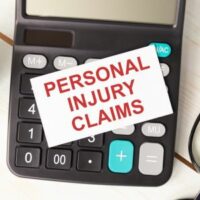What Happens If The Defendant In Your Case Files For Bankruptcy?

So you’ve looked at all the possible defenses that the defendant may assert against you and balanced the strengths and weaknesses of your case, and you are moving forward to the trial in your lawsuit. Maybe you even rejected a settlement offer, confident that your personal injury trial will yield a better result.
And then it happens: You or your attorney get a notice that the Defendant is filing for bankruptcy. What does that mean to your case and your claim? What do you do now?
Bankruptcy Can Stop Your Case
The good news is that large companies don’t file for bankruptcy very often, but individuals, such as those who may be driving and causing car accidents, often do. Usually they aren’t filing bankruptcy just because of your lawsuit, but that doesn’t matter. The bankruptcy has now put a hold on your case.
The minute the bankruptcy is filed, you are prevented from going forward with your case or your claim. That’s because you, as someone who is suing, are technically a creditor, and all collections activities and lawsuits against the debtor (the person or company filing for bankruptcy) must immediately stop.
Continuing Your Case
There are two ways to continue to pursue your claim. You can, in front of the bankruptcy judge, argue that your claim falls within the limits of the other side’s insurance coverage, and thus, the other side does not stand to lose anything, personally. The other way is to convince a bankruptcy judge that the debtor is simply filing bankruptcy to avoid your lawsuit—not for legitimate financial hardship.
If the court lifts the automatic stay and allows your case to go forward, you can continue—but you may have to continue your case in federal court.
If your claim is not allowed to go forward—that is, the automatic stay is not lifted—there is a good chance that your lawsuit and your claim are gone forever, as lawsuits are dischargeable debts.
The exceptions are injuries or death that result from a DUI or DWI, and injuries or death that result from a purposeful or intentional act, as injuries or expenses related to these are not dischargeable in bankruptcy.
After Your Case is Over
Even if the Defendant files for bankruptcy after your injury case is over, but the settlement is not completely paid yet, you’ll be in the same situation.
If insurance is paying or there is insurance coverage, you will be able to continue getting paid what you are owed from the judgment or settlement. But if the debtor’s personal (or business) assets are exposed, that amount can be discharged, and you will not ever be able to recover those amounts.
The Tampa personal injury attorneys at Barbas Nunez Sanders Butler & Hosepian can help you handle the expected and unexpected things that often happen in a personal injury claim. Schedule a consultation today if you are injured in any kind of accident.




